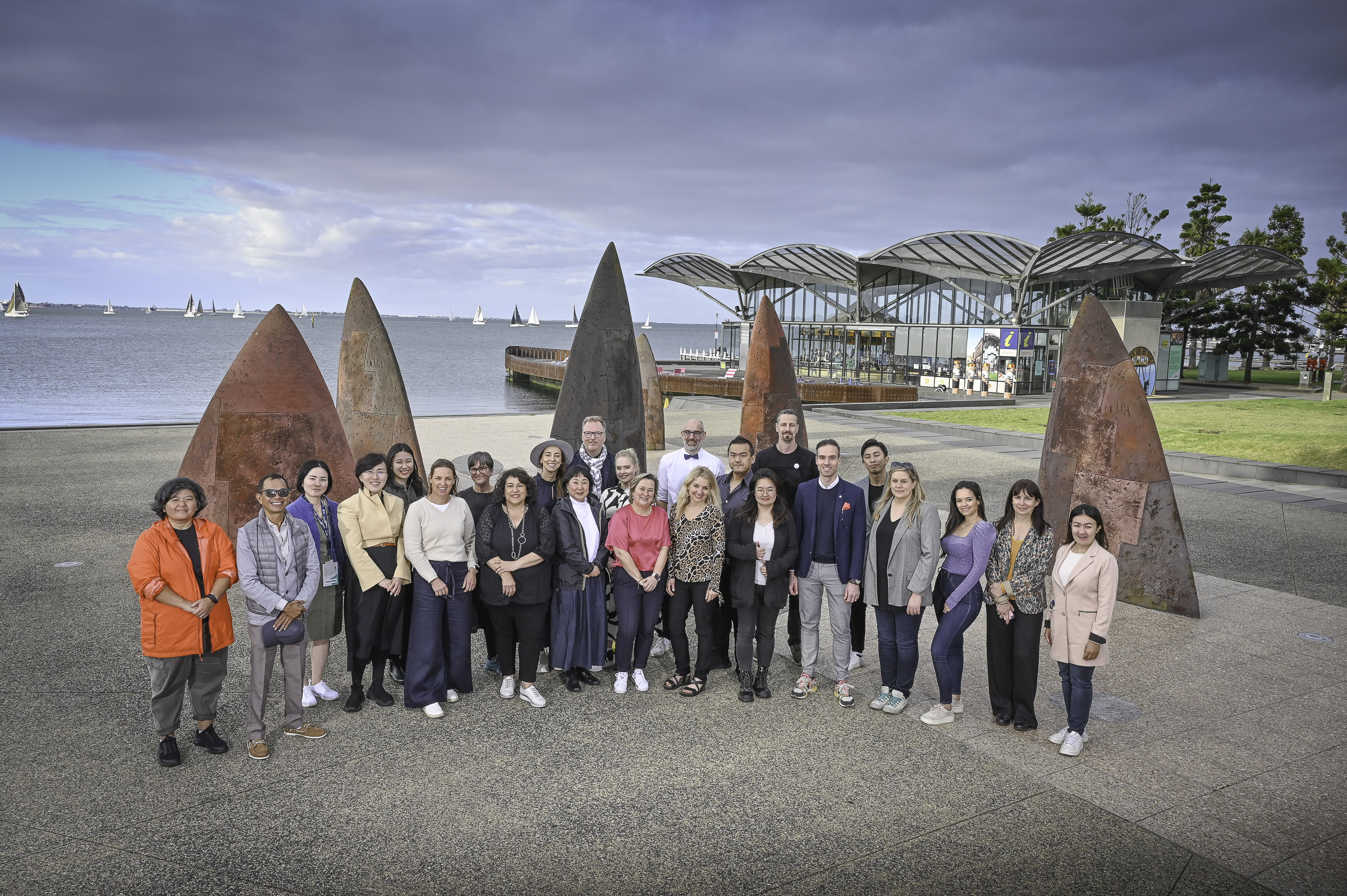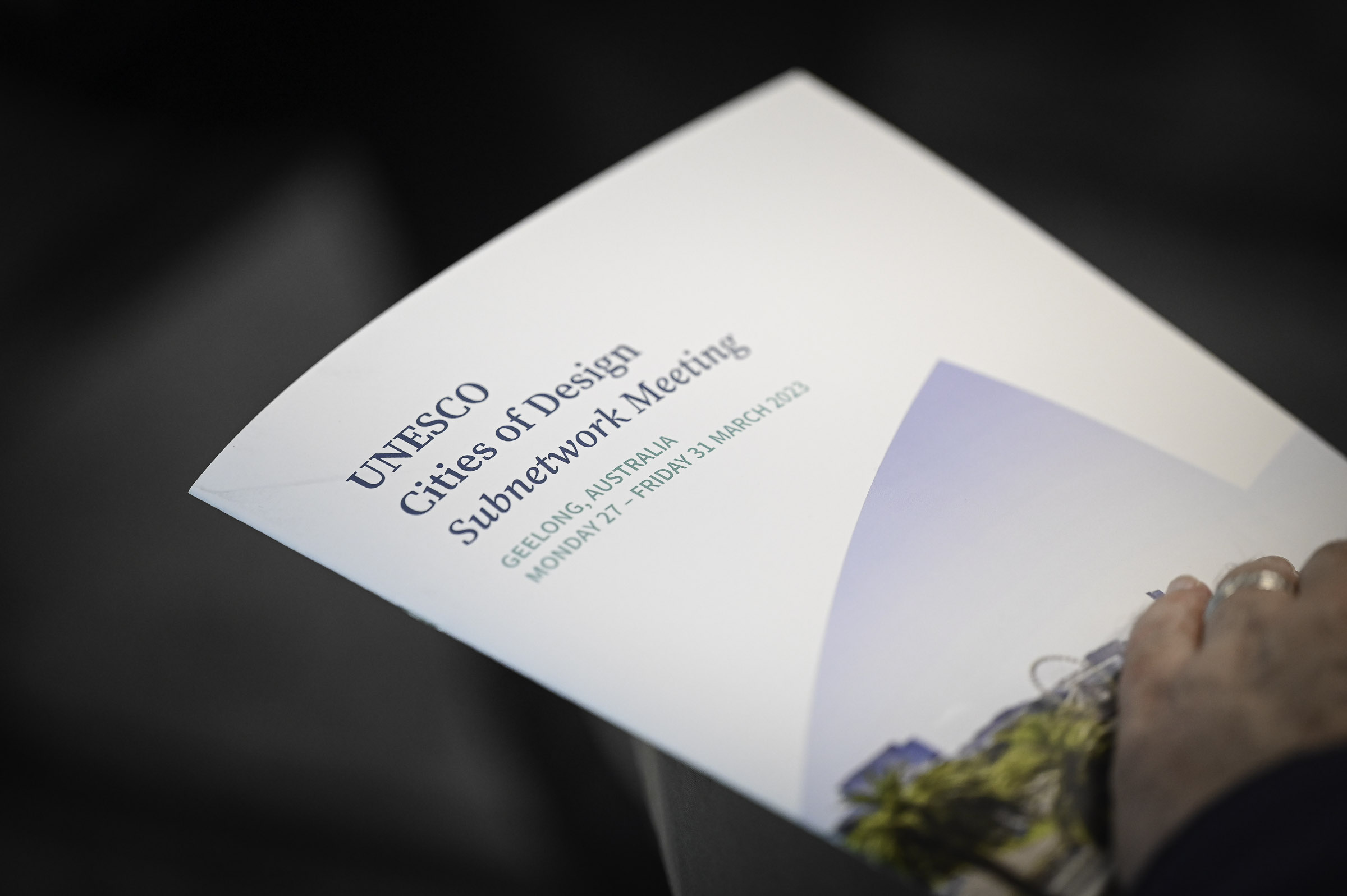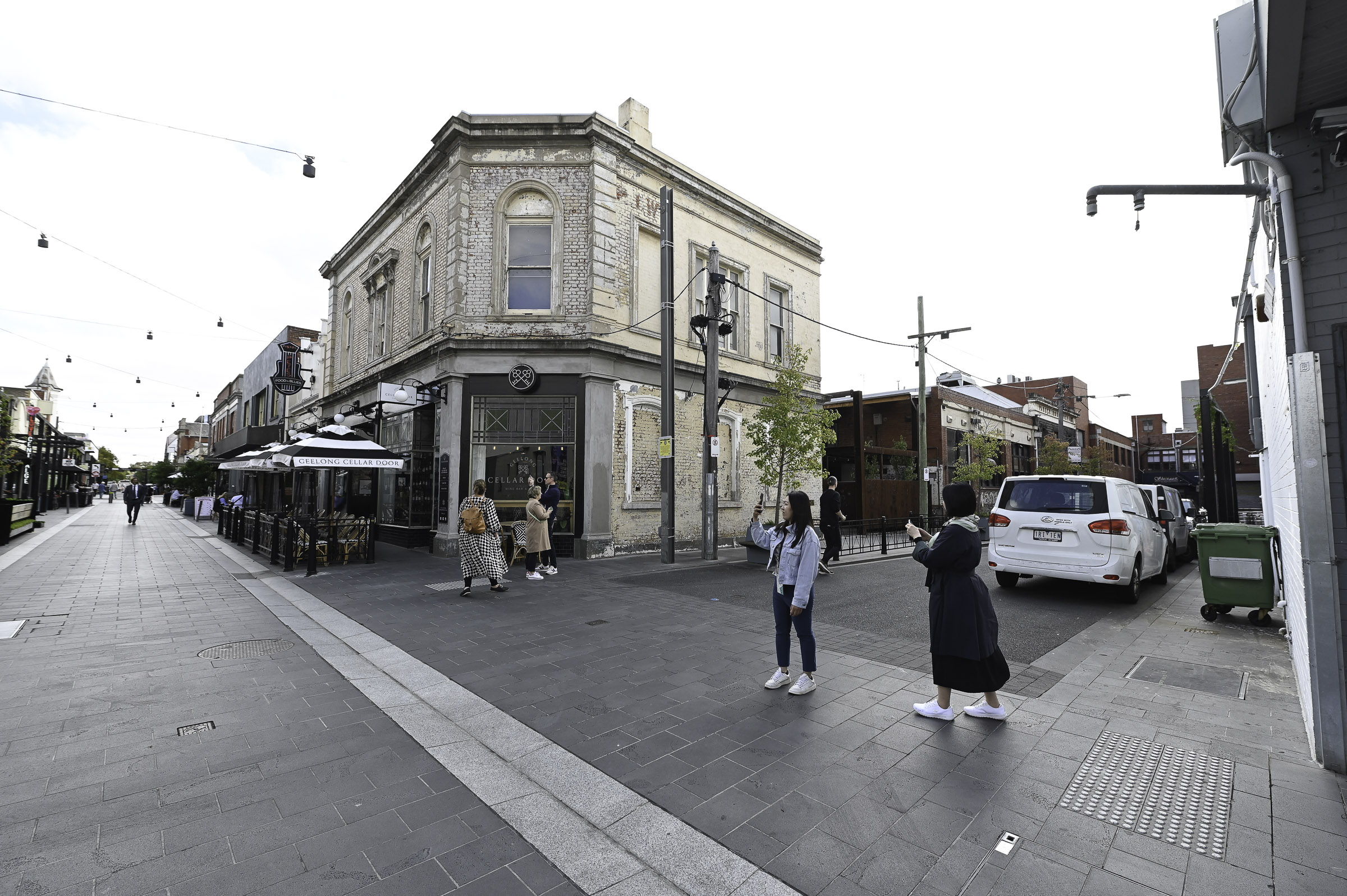Annual Meeting of the UNESCO Cities of Design Subnetwork, Geelong (Australia)
Representing a unique opportunity for sharing experiences and networking among its member cities, the annual meeting of the Design subnetwork of the UNESCO Creative Cities Network (UCCN) showcases specific projects by participating cities and furthers the development of collaborative initiatives. This year, some 26 delegates from 17 different cities attended the meeting, which was held from March 27 to 30. We thought we’d share the highlights of the event as well as provide a look at Geelong, Australia, the host city for the meeting.
Located an hour’s drive from Melbourne, on the ancestral lands of the Wadawurrung people, Geelong was awarded City of Design status in 2017. It has adopted the mission of fostering a design-driven culture within the municipal administration and the industry, leveraging creative talents to achieve the city’s sustainability, resilience and inclusion objectives.
Attendees at the meeting learned about two major strategies for action employed by the City of Geelong. The first is consolidation of a creative district (officially, the “cultural precinct”) around various major arts and culture institutions including the Platform Arts centre and Back to Back Theatre, both of which are housed in the city’s Old Courthouse Building, and Creative Geelong, a collective of art galleries and cultural spaces in a former shopping centre. These institutions’ presence is being reinforced by public projects including the shared-use redevelopment of Little Malop Street, the heart of the cultural precinct, and other renovation, expansion and building projects for public cultural institutions, including:
-
The Geelong Library & Heritage Centre, with its dome structure, designed by the firm ARM Architecture, and which inspired the visual identity for Geelong’s UNESCO City of Design status;
-
The Geelong Arts Centre, designed by Hassel Studio, inaugurated in 2019 and currently being expanded in collaboration with ARM Architecture; and
-
The Geelong Gallery, for which redevelopment and expansion are in the planning stages.
The second strategy deployed by Geelong is development of an innovation ecosystem around three distinct hubs:
-
Deakin University, whose campus includes the Geelong Future Economy Precinct, a network of incubators for innovative start-ups;
-
The Pivot City innovation district, a private-sector-led redevelopment of a former industrial site; and
-
The Gordon, a college-level teaching institution that is home to Geelong Tech School, the mission of which is to introduce secondary-school students to science and technology concepts using experiential learning techniques centred on the design process.
Besides providing opportunities to share experiences, the annual meeting of the UNESCO Cities of Design Subnetwork enables the development of collaborative projects focused on how design can help achieve the UN Sustainable Development Goals (SDGs), a central theme of the UCCN. The cities in attendance at this year’s meeting paid particular attention to three projects:
-
Mapping of the design ecosystems in each of the cities, in collaboration with Professor Anna Wicher, affiliated with the design policy research institute at PDR – Cardiff Metropolitan University, so as to establish a common reference framework for documenting and comparing their respective action plans;
-
Pooling of initiatives favouring design-driven solutions for equity, diversity and inclusion, so as to build a directory of resources and experiences contributing to achievement of UN SDG 10, Reduced Inequalities; and
-
Renewal of the International Street Design Challenge for a third edition; this event aims to build dialogue among public administrations and university students in the various UNESCO Cities of Design on public spaces and their planning.
The annual subnetwork meeting also provided the opportunity for Montréal to publicly launch the Design Montréal Quality Toolkit during one of three Lunch & Learn panel sessions organized by the City of Geelong. The session, titled Urban Design initiatives across the UNESCO Creative Cities, was moderated by Jonathan Daly, the City of Greater Geelong’s Manager for Urban Design and Heritage.
It also featured a presentation on designing neighbourhoods adapted for people living with dementia, based on work conducted by the Singapore Design Council and its partners, given by Chen Guanyou, Deputy Director, Strategy, Governance and International Relations, DesignSingapore Council.
The other two Lunch & Learn sessions focused on how arts and culture organizations can engage participation by young people, and on consideration of sustainability in the manufacturing industry.



